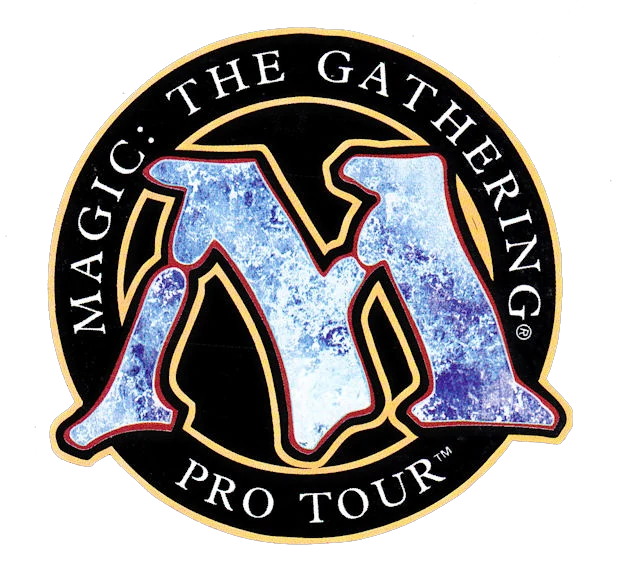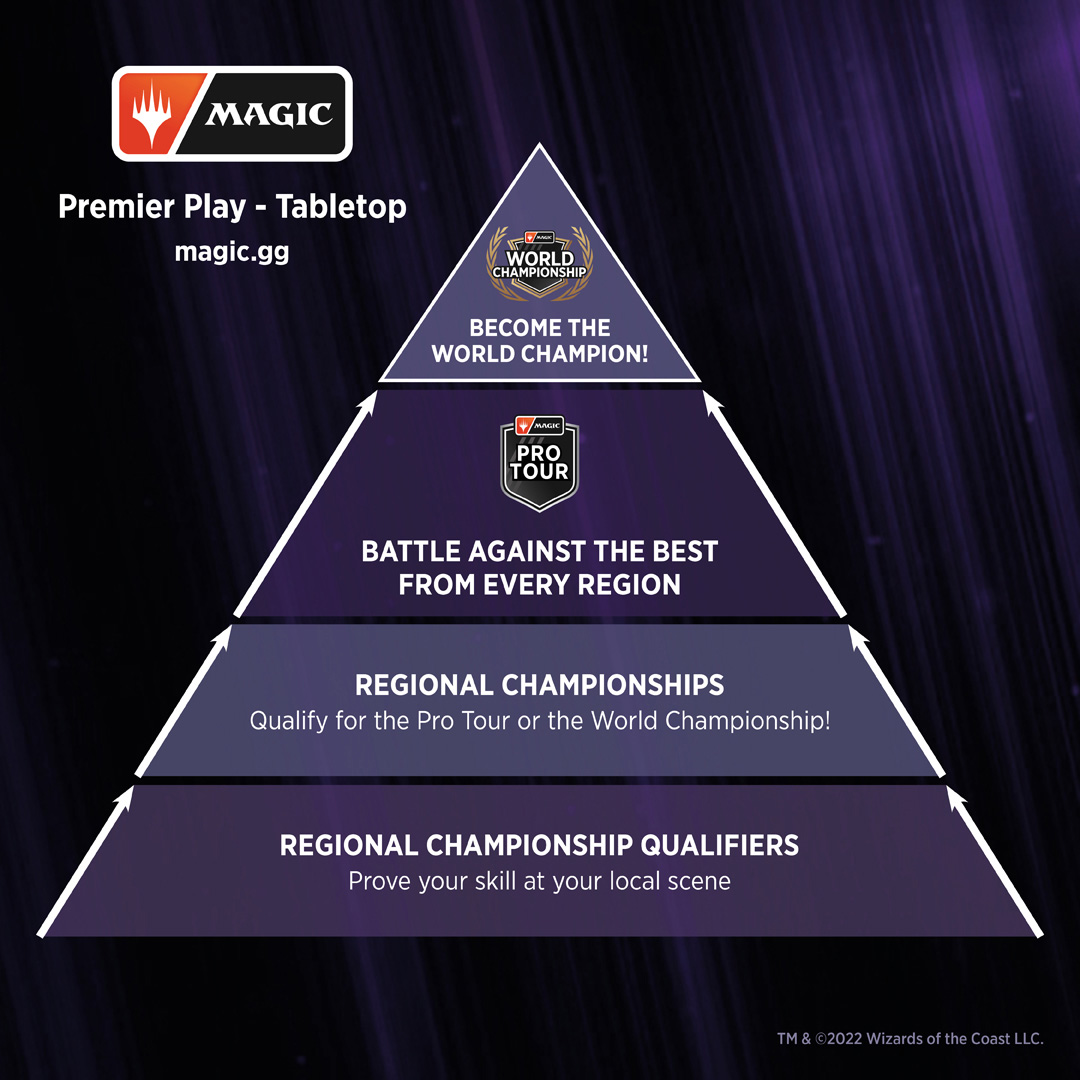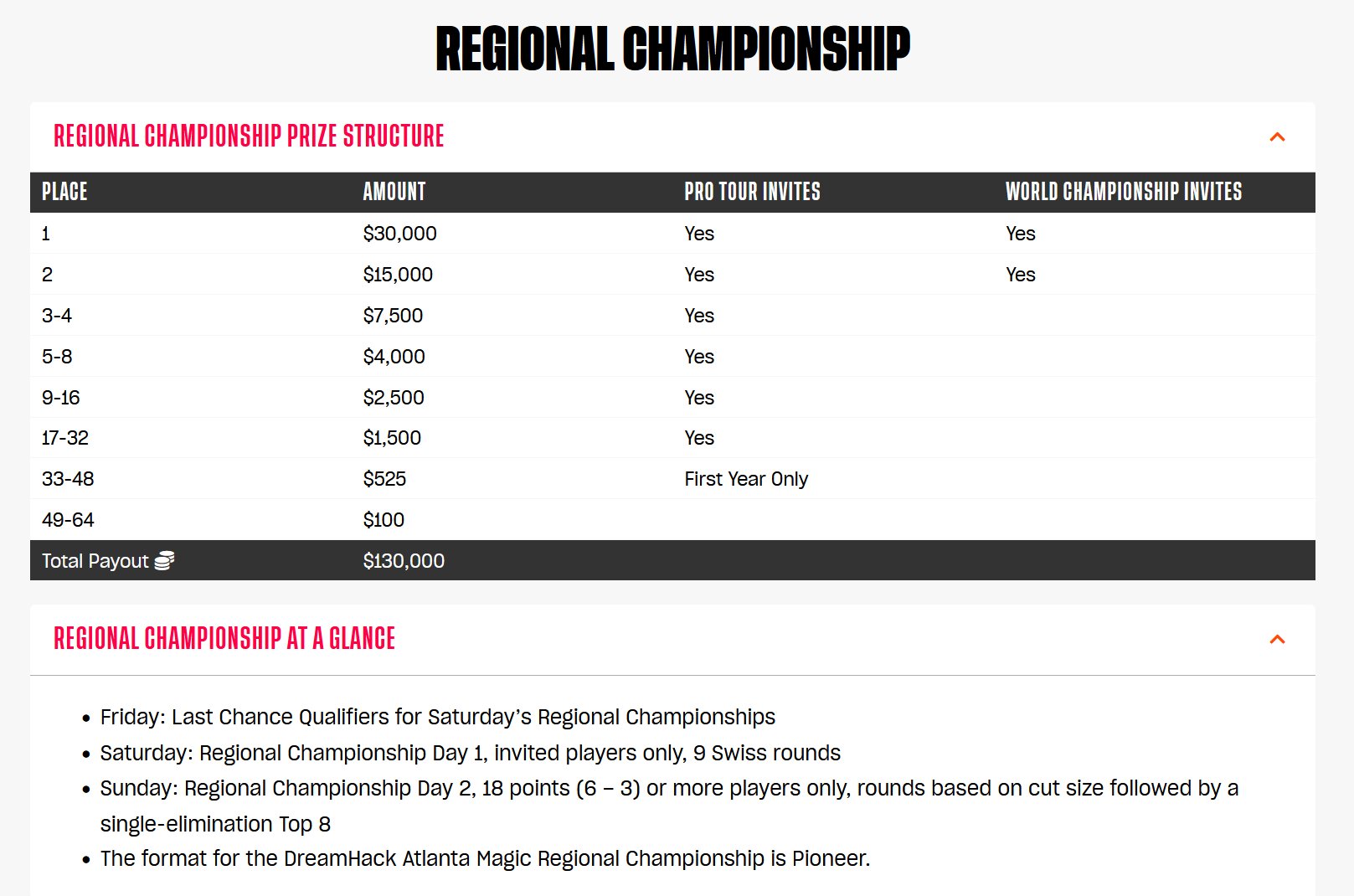Magic needed a win yesterday.
Despite record sales, it's been a troubling few years for the game. The MPL experiment ending up being a failure, while Covid-19 threw a major wrench into an already mixed-up tournament scene. MTG Arena, which had a spectacular launch, has been alternating between stagnating and moving backward, while we've seen more bannings across more formats than ever in a short time frame. The MTG Arena economy stream last week did not inspire confidence either.
Well, it is my joyous duty to be the bearer of great news...
The Pro Tour is Back!
The Magic Pro Tour has a storied history that dates all the way back to 1996.

Pretty much every big tournament Magic moment that is forever engrained in Magic lore, from the OMG Lightning Helix to the Cruel Ultimatum called shot, is from coverage of the Pro Tour. The Pro Tour has sent countless players galivanting around the world to gather together to compete for fame and prizes, offering Magic: The Gathering a legitimacy that most games could only dream of.
Pro Tour Guilds of Ravnica was the last Pro Tour event to happen back in 2018 and since then we've had a hodgepodge of professional level events with many different names; Players tour, Mythic Championship, Set Championships, and more, but none could capture the magic or clarity of The Pro Tour.
Now, as laid out yesterday by Wizards of the Coast and their new Director of Play Programs, William Jensen, The Pro Tour has returned! It's a lot of information to take in, so today I'm going to break down what Organized Play is going to look like going forward, as well as how this is just about the best-case scenario.
The Path to the Pro Tour
The most vital and critical part of the Pro Tour for most of Magic's history has been that it is an aspirational system.
Pro Tours were full of hall of famers and full-time professional Magic players, but also had a good amount of first timers or weekend warriors who were able to qualify via a local qualifying event or Grand Prix. For every Jon Finkel or Luis Scott-Vargas, there were dozens of players who got to go on the trip of a lifetime to play in a professional Magic event against the biggest stars in the game in some exotic locale, coming home with stories and memories that would last forever.
The tagline for the Pro Tour used to be "Play the Game, See the World" and it was extremely accurate.
This was the biggest failing of the recent systems, which put a seemingly insurmountable obstacle between your average player and the professional scene. The MPL and surrounding system was inaccessible, boring, and downright confusing. Luckily, the system announced yesterday is fairly simple and has a lot in common with that was right about the old systems.

It's a four-step system which is fairly simple to grasp, so let's go over each level of play.
Step One: Regional Championship Qualifiers
Everything starts at the Regional Championship Qualifiers, which will be local level events designed to set you on your path through the organized play system. These will be held at the larger local WPN stores just like your local FNM and Prerelease events.
These are essentially just old school Pro Tour Qualifiers - players show up, play in a local or semi-local event, and one player gets to walk away with the big ticket. The difference here is there is now a step between the qualifier and the actual "Pro Tour" which is essentially a regional mini-Pro Tour.
Step Two: Regional Championships
This is where things deviate a bit from the original Pro Tour model, and also where I think the nomenclature fails a little bit.
Regional Championships are nothing like old "Regionals" events, which were essentially just huge semi-casual open qualifiers that qualified you for Nationals. The prizes were small and there were at least a dozen across the country. They also seem a bit like Regional Pro Tour Qualifiers that the more recent PPTQ system fed into, but again those were smaller events that were numerous and had very little fanfare; their sole purpose was just to qualify players for the Pro Tour.
Instead, the Regional Championships are essentially just local Pro Tours. There are 13 different regions around the world, and each region has its own TO running the Regional Championships. For the smaller regions they will likely be smaller events, but for the bigger regions (like the United States, which is only one region) these events are going to be massive.

This is the prize structure of the United States Regional Championship, which is not too far off the prize structure of a Pro Tour. The bigger of these events will likely have coverage and be very prestigious for those who do well. This is also your most direct path to the Pro Tour, as the Top 32 players will all get a Pro Tour invite.
This does mean that it's a little harder to make it to the Pro Tour than it used to be, as there is another step to the process, but the fact that this event pretty much feels like a Pro Tour alleviates a lot of that concern. Sometimes non-full time players can't really afford to drop everything and fly to Japan for an event, so this is an excellent middle ground. Wizards of the Coast has said they don't want to provide air travel like they used to and this is a very reasonable compromise.
I would have preferred if they had used a different name for this, as both "Regionals" and "Regional Qualifier" both already have very established connotations that are far below the bar for this, but it's a minor gripe.
Step Three: The Pro Tour
This is it, the big tamale. The Pro Tour returns with a very similar look and feel to the old Pro Tour events - Full coverage, paper Magic, $500,000 prize pool, split format Draft and paper format, and about 300 players.
I've played in a lot of Pro Tours and let me tell you that it's a special experience.
There's a certain weight to working really hard for something, achieving it, traveling halfway around the world, and gathering in a room with a bunch of likeminded people who've all had the same journey. It's hard to describe and something you really just need to experience, and now that experience is once again possible for many Magic players which is a beautiful thing.
It is a bit harder to qualify that it used to be, but the important part is that it is an achievable goal. Furthermore, while there are no more professional levels like there used to be which would auto qualify you and pay appearance fees (Gold, Platinum, etc), there is a fairly simple system to help players chain together good finishes into more invites. It's based around how many match wins you get at each Pro Event; the details are here, but the long and short of it is that if you do well at Pro Events you can chain together invites without needing to requalify.
This is a very important part of the new system.
One of the most important things that needs to be understood about this announcement is that Wizards of the Coast has to walk a line between what the players want and what is economically possible based on Hasbro. Ideally, we'd all be flying around in golden airplanes to every Pro Tour for free, but that isn't a realistic thing. This system does an excellent job of balancing being financially reasonable for the parent company, but also allowing players to have clear expectations and goals.
Step Four: World Championship
This step isn't going to mean much for the majority of players, as making it to the World Championship is going to be exceedingly difficult, but the important part is the $1,000,000 prize pool as well as full coverage.
Worlds is the most exciting event of the year and it's going to be a great show!
About as Good as You Could Hope For
Running Organized Play for Wizards of the Coast seems like it must be an almost impossible task.
They have to make a system that is easy to understand and engage with, accessible for as many players as possible, that also rewards success in a meaningful way. They also need to do so in a way that is sustainable and cost efficient, because, when it comes down to it, Wizards of the Coast isn't a charity, they're a business.
While there are a few wrinkles here and there, it would be hard to imagine yesterday's announcement realistically being any better for Magic players of all types. The system is clear, aspirational, and attainable, while also providing coverage and prestige in line with the history of the game.
I'm excited, and you should be too!























